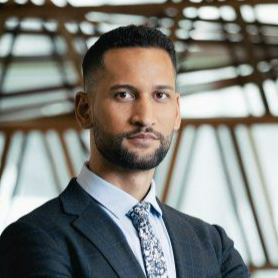Dr Hinurewa Poutu and student. Photo/File
A Welsh language expert says indigenous languages have "less power in the world" because other more dominant languages have gained power at their expense.
Dafydd Trystan, of Cole Cymraeg Cenedlaethol (Welsh National College), was speaking at the Mokuola Honua indigenous language symposium in Hilo, Hawai'i.
Trystan says, "We face many similar challenges. Indigenous languages have fewer resources, have fewer speakers, have less power in the world we live, and what we see is those dominant languages - English for example - gaining power, sometimes at the expense of the indigenous languages."
Another keynote speaker at the symposium was the director of te reo Māori at Māori Television, Dr Hinurewa Poutu, of Ngāti Rangi, Te Ātihaunui-ā-Pāpārangi and Ngāti Maniapoto.
“The great thing about coming together is sharing our experiences, sharing what we have learned, the challenges, the successes and feeding off each other as we continue to strive so our languages will thrive in our homelands, Dr Poutu says.
“So one of the benefits of coming together and hearing the journeys of others is that we no longer feel that we are isolated or alone because there are global efforts across the world to revive our languages.”
(L-R) Mahina Paishon-Duarte (Hawai'i), Dr Hinurewa Poutu (Aotearoa), Dafydd Trystan (Wales). Photo/Jason Patterson ('Ōiwi TV)
The symposium was hosted at Mokuola Honua, a global centre for indigenous languages.
"The mission of Mokuloa Honua is to foster long-term relationships between indigenous people who are revitalising their language, like the Māori and us who have been working together for over 35 years," executive director Amy Kalili says.
As the symposium concludes, the work continues for immersion programmes like those at Ke Kula 'o Nāwahīokalani'ōpu'u and Ke Pūnaleleo Leo o Hilo.
11th-grade student Lilinoe Ahia, who attended one day of the four-day event, says that although her language is not popular among her circle of friends, she understands the importance of maintaining it.
"Where I grew up there weren’t a lot of people my age who liked Hawai'ian. Not many people could speak Hawai'ian. They did not have an opportunity to learn the language.
"From my perspective, it is important to revitalise the Hawai'ian language. The language is linked to wealth and knowledge. It is tied to wisdom from our ancestors from our past. If I can revitalise it in some way, I can build on it and pass that onto the generations to come."
Indigenous language advocates and students from Ke Kula 'o Nāwahīokalani'ōpu'u. Photo/ Bryson Hoe ('Ōiwi TV)
Language advocates from around the world were given the opportunity to experience the schools, observing classes in operation.
Ciinkwia Jarrid Baldwin, from the First Nations Miami Tribe in Oklahoma, is on a mission to bring back his ancestral language which currently has no fluent speakers.
“Just by seeing other situations that are totally different from my own, I can see how they are tackling problems and dealing with situations,” he says.
“These connections will continue after this, and so I’m making friendships and so we will be able to continue helping each other.”
These interviews were conducted by 'Ōiwi TV in Hawai'i and supplied to Māori Television.


